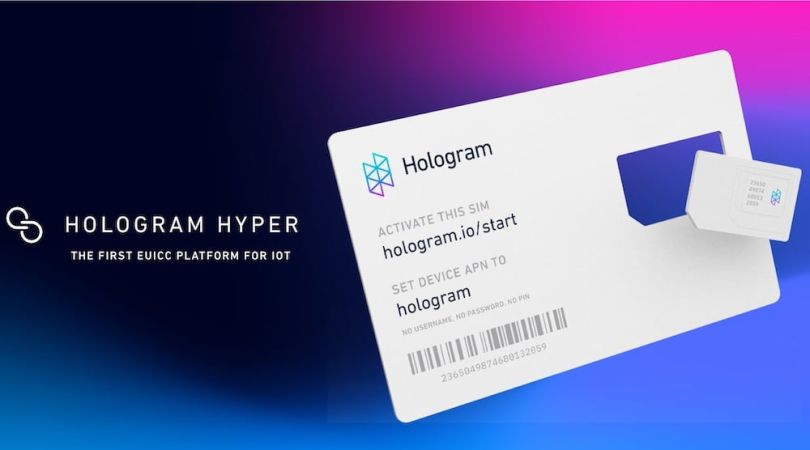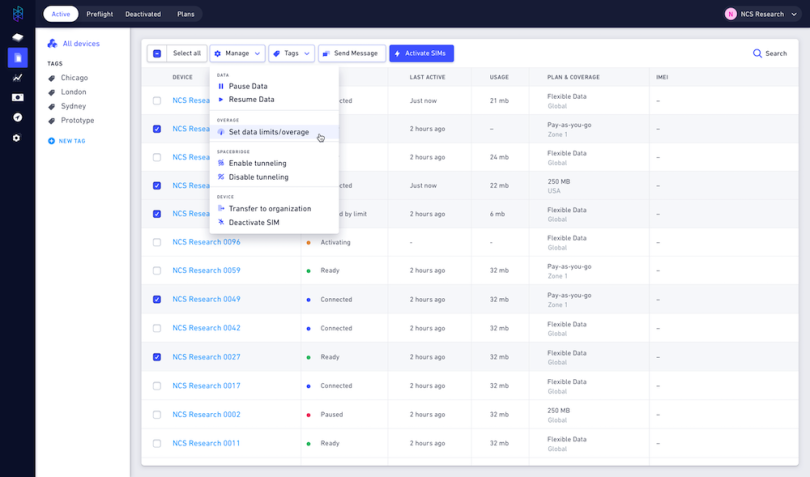
The number of connected devices in the world is rapidly growing, and, with that number, IoT startup Hologram hopes to grow too.
Look around your house and you’ll probably find a handful of devices that can connect to the internet. Not just your laptop, desktop and phone, but also your tablet, video game console, smart speaker and smartwatch, or maybe even your TV, thermostat, doorbell, exercise bike, refrigerator and so on.
If you step outside your house you’ll find even more connected devices. The point-of-sale terminal that cashiers use, the e-scooter parked on your corner, the bus stop that displays estimated arrivals and the new cars that pass you on the street. These IoT devices are everywhere, and if you actually look for them you’ll realize they’re hidden in plain sight.
One thing we take for granted is how these devices actually connect to the internet. Most of the devices in your house probably connect to your home Wi-Fi, but those e-scooters and bus stops outside connect to a mobile network. These are the same networks (think 5G and LTE) that connect our phones to the internet. But an interesting thing is starting to happen, these networks aren’t being dominated by phones anymore.
“We’re starting to see an inflection point, where things that are not phones are dominating the number of connections to the internet,” Hologram CEO and co-founder Ben Forgan told Built In. “Same thing with data. The amount of mobile data being consumed has been increasing for a long period of time, largely due to smartphones, but now it’s increasing faster for devices that are not phones.”
But if mobile networks were built for phones, how do they adapt to this influx of non-phone devices? With companies like Hologram.

Hologram’s technology works in two ways. The company has created a SIM card that can go directly into IoT devices and connect them to the internet — just like how the SIM card in your phone connects it to an LTE or 5G network. But what makes Hologram’s SIM special is its ability to switch between multiple carriers so devices don’t lose coverage.
“That’s our secret sauce,” Forgan told Built In. “We’ve architected the platform thinking that it needs to be able to work globally, all the time, be super redundant and work across multiple carriers. Our vision is to build a product where you could connect any device to any network instantaneously, anywhere.”
The second aspect to Hologram’s tech is its software. Hologram has designed a platform that connects to these SIM cards and provides a dashboard of all your connected devices. Let’s say a company like Bird or Lime has a fleet of e-scooters. They need to be able to not only connect these devices to the internet, but also see measure data usage and know if a device loses connection. Hologram’s dashboard can help manage these things.
“We want to fulfill that promise of being the system of record for your connected fleet,” Forgan said. “We’re ultimately trying to turn connectivity into software as much as it can be turned into software.”

Hologram has seen traction in a variety of industries, from retail to healthcare, manufacturing, logistics, agriculture and more. And in 2020, Hologram experienced a year of record growth across all of these spaces.
Hologram’s revenue grew over 100 percent in 2020, and it’s expected to at least double in 2021. Device-level data usage on Hologram’s platform also more than doubled from 2019 to 2020, and is expected to keep growing rapidly. Partnerships increased too; now Hologram allows devices to connect to over 550 carrier networks across over 200 countries.
The company aims to keep this momentum going, and part of that will involve hiring. Hologram plans to double its employee headcount over the next 12 months or so, going from around 50 employees to about 100. A lot of these hires will be on the product side, in order to help build and expand Hologram’s core products, but Hologram is also hiring for roles in sales, marketing, customer success and more.
“I’m excited to be growing and expanding the team,” Forgan told Built In. “I think we’ve built a really great culture at Hologram and I'm really excited to keep that going, and evolve that culture while staying true to who we are.”
This expanded team will help Hologram as it provides connectivity to the future of IoT devices. As the number of connected devices out there in the world grows, Hologram hopes to have a greater impact on the connected world.




